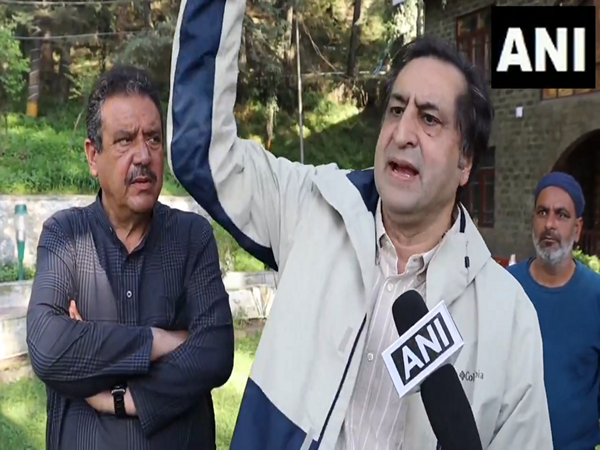Pakistan Minister 'criticizes' Imran Khan's party for severe water crisis in Sindh, Balochistan
May 28, 2022

Karachi [Pakistan], May 28 : As Pakistan's provinces of Sindh and Balochistan continue to bear a heavy brunt of reduced water supplies due to climate changes, falling economy and political instability, Pakistan Foreign Minister Bilawal Bhutto-Zardari has sought to put the blame on the previous Pakistan Tehreek-e-Insaaf (PTI) led-administration.
According to IFFRAS, Bhutto-Zardari recently raised the issue at the United Nations stating that the country was reeling under "severe water and starvation," criticising the Imran-Khan led previous government's actions, which he alleged led to the current water crisis.
He also claimed that the PTI administration had denied Sindh of its rightful share of water.
So far, Punjab and Sindh have not been able to find a workable solution to address the matter resulting in high tensions between the two provinces.
The situation is so grave that the Sindh Chamber of Agriculture, a group lobbying for the Sindh's farmers, has demanded that the province "should be declared drought-hit because around 60 per cent existing water shortage had turned fertile agricultural lands barren besides creating drinking water issues."
In fact, over 85 per cent of Balochistan's population is deprived of clean drinking water which has led to a deadly cholera outbreak in the region, killing six people and infecting over 2,500 since mid-April in Dera Bugti district's Pir Koh tehsil.
The outbreak was caused by a lack of clean drinking water in the area, forcing the local residents to drink dirty water. Neither the Baloch administration nor the federal government had taken cognizance, or even acknowledged the outbreak until very recently after a much hue and cry about it in the national and international media. Barring few official statements, promises of 'emergency relief measures,' and visits to Pir Koh, no major action has been taken on ground to control the outbreak, reported IFFRAS.
According to the recently released UN report titled 'Global Land Outlook', Pakistan is part of the 23 countries globally, which are suffering from a "severe and prolonged drought." The Shehbaz Sharif-led Pakistan Democratic Movement (PDM) government has completely failed to address the issue as it is still struggling for survival, the report stated.
Moreover, Sharif's home province, Punjab, appears to be less affected by the water crisis, while the remaining three provinces are bearing a huge brunt of the reduced water supply as the Peoples Party of Pakistan (PPP) government in Sindh has blamed Punjab for not releasing enough water required for the province's needs, it added.
Furthermore, an inquiry committee has also been set up to look into the complaints of Sindh about "water theft" by Punjab. On the other hand, Punjab's irrigation authorities blamed the Indus River System Authority (IRSA) for worsening the crisis by apportioning the province up to 26 per cent less water than its total share in the last month.
Besides Sindh, the water crisis in Balochistan has reached an 'emergency' level. Areas such as Gwadar in Balochistan which is the focal point of the China Pakistan Economic Corridor (CPEC) is facing acute water shortage.
Massive protests had erupted in Gwadar in November last year against a severe shortage of water and electricity and threats to livelihoods from illegal fishing by Chinese fishermen.
Approximately 70 per cent of Balochistan's population has been affected by severe water shortage, and Gwadar has been the worst hit. Several dams and water filtration facilities have been promised in Gwadar under CPEC, however, the water crisis is only worsening with each passing year, the report stressed.
Acute water shortage along with a searing heatwave has sparked tensions between Sindh and Punjab in Pakistan over their share of the nation's water resources.
Pakistan is estimated to be in the top 10 list of the world's countries facing water scarcity.



















